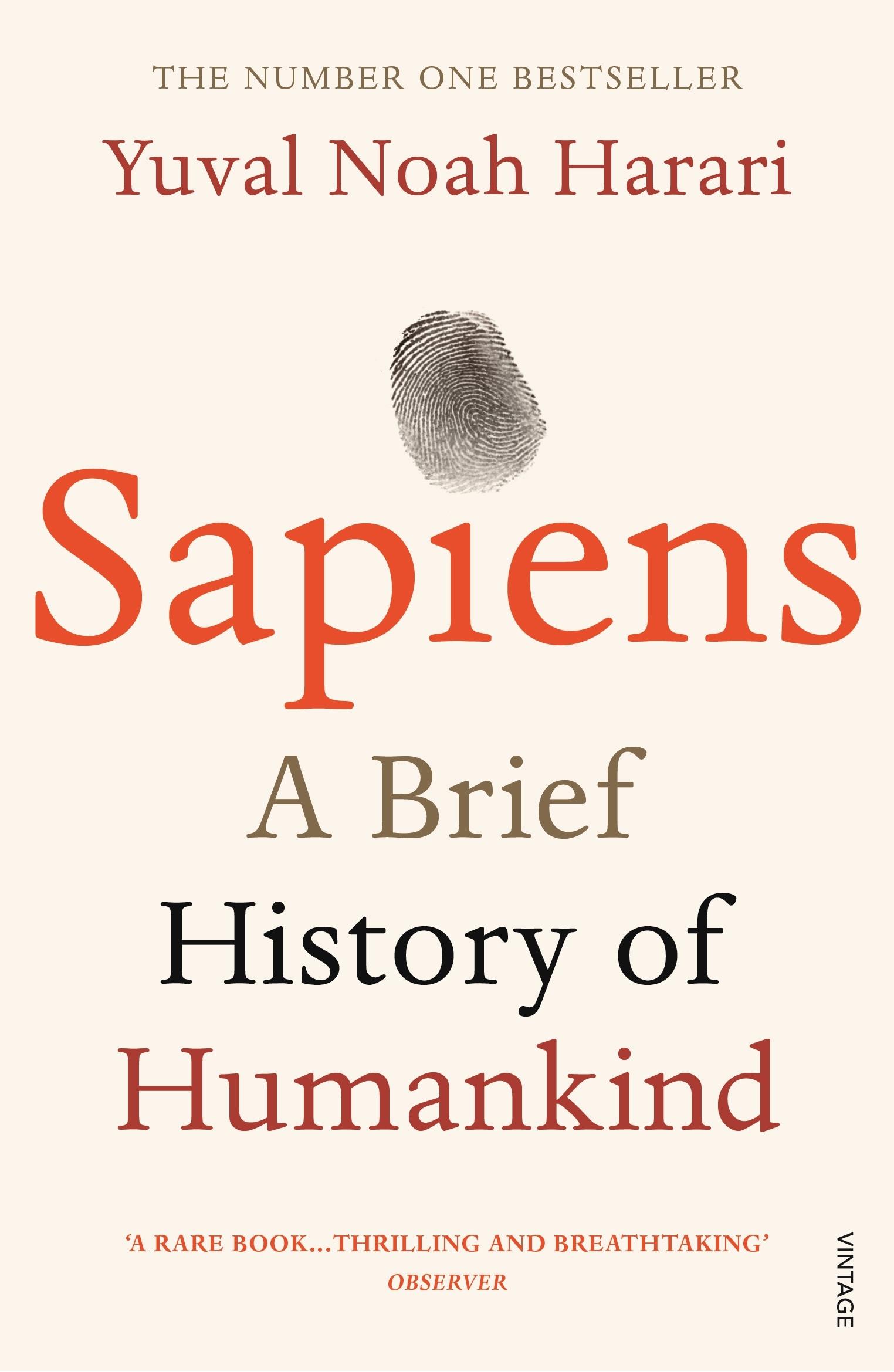EricosEagle@bookwyrm.social reviewed Sapiens by Yuval Noah Harari
Review of 'Sapiens A brief Story of Human Kind' on 'Goodreads'
4 stars
Was an excellent book except for the part about the agricultural revolution

English language
Published July 6, 2011 by Harper.
Sapiens: A Brief History of Humankind is a book by Yuval Noah Harari, first published in Hebrew in Israel in 2011 based on a series of lectures Harari taught at The Hebrew University of Jerusalem, and in English in 2014. The book surveys the history of humankind from the evolution of archaic human species in the Stone Age up to the twenty-first century, focusing on Homo sapiens. The account is situated within a framework that intersects the natural sciences with the social sciences. The book has gathered mixed reviews. While it was positively received by the general public, scholars with relevant subject matter expertise have been very critical of its scientific claims.
Was an excellent book except for the part about the agricultural revolution
Sapiens (2011, Harper) 4 stars
(Audiobook) I already knew a lot of the content but I enjoy having it from a new perspective with a variety of new anecdotes. At some points I distinctly felt like the author's biases were coming through--in fact at some points I really questioned his ideas--but otherwise an enjoyable and informative book.
Amaze
Loved the author's perspective, the way he built history with a refreshing detachment, as if seen from an alien. Some chapters were particularly fertile in making me think, such as the social constructs that drive us, the way we have instrumented dairy animals... Politics weren't deeply discussed but I guess that's fair, all things considered. I must point out I am not a regular history books reader either. It's more of a 4.5 rating.
I'd heard a lot of good about this book, and the start was promising, but then I started to get a little annoyed...
There are natural limitations to a book, and a book like this, taking so broad a subject, must of necessity be superficial and selective, but even so, this one quickly wound up feeling far less a history of humankind, and far more a history of Euro-american humankind. Most annoying conisdering how global a view it started with. And so towards the end I come across bits like this:
"When judging modernity, it is all too tempting to take the viewpoint of a twenty-first century middle-class Westerner. We must not forget the viewpoints of a nineteenth-century Welsh coal miner, Chinese opium addict or Tasmanian Aborigine. Truganini is not less important than Homer Simpson."
And that all sounds very good, and I agree, but I wonder how it is …
I'd heard a lot of good about this book, and the start was promising, but then I started to get a little annoyed...
There are natural limitations to a book, and a book like this, taking so broad a subject, must of necessity be superficial and selective, but even so, this one quickly wound up feeling far less a history of humankind, and far more a history of Euro-american humankind. Most annoying conisdering how global a view it started with. And so towards the end I come across bits like this:
"When judging modernity, it is all too tempting to take the viewpoint of a twenty-first century middle-class Westerner. We must not forget the viewpoints of a nineteenth-century Welsh coal miner, Chinese opium addict or Tasmanian Aborigine. Truganini is not less important than Homer Simpson."
And that all sounds very good, and I agree, but I wonder how it is that Harari managed to not take his own advice...
I am also left with the feeling that Harari overly romanticises the pre-Agricultural hunter-gatherer lifestyle, but also pre-Industrial societies. Certainly the Agricultural and Industrial Revolutions were highly disruptive and brought many disadvantages, but sitting here in the comfort of a stable, 21st century democracy, it's hard not to see the advantages those revolutions have brought. Vaccines, for starters.
Then, looking at the future, the rise of information technology, the possibility of artificial intelligence:
"What is a spaceship compared to an eternally young cyborg who does not breed and has no sexuality, who can share thoughts directly with other beings, whose abilities to focus and remember are a thousand times greater than our own, and sho is never angry or sad, but has emotions and desires that we cannot begin to imagine?
Science fiction rarely describes such a future, because an accurate description is by definition incomprehensible."
I recommend Harari try reading Isaac Asimov. "I, Robot" and "Bicentennial Man" do not match the above description (robots vs. cyborgs), but they do imagine a future where AI has developed to the point of taking on a life of its own.
So, "Sapiens" gets off to a promising start, but quickly descends into a glib, superficial, eurocentric disappointment.
Very much enjoyed this book. It had some really mind blowing bits in it.
One of the best science / history books I've experienced. Beyond just educational regarding evolution and mankind's place in the world, it will encourage you to rethink your views on "what is a religion?" and "is mankind significant or are we just full of ourselves?"